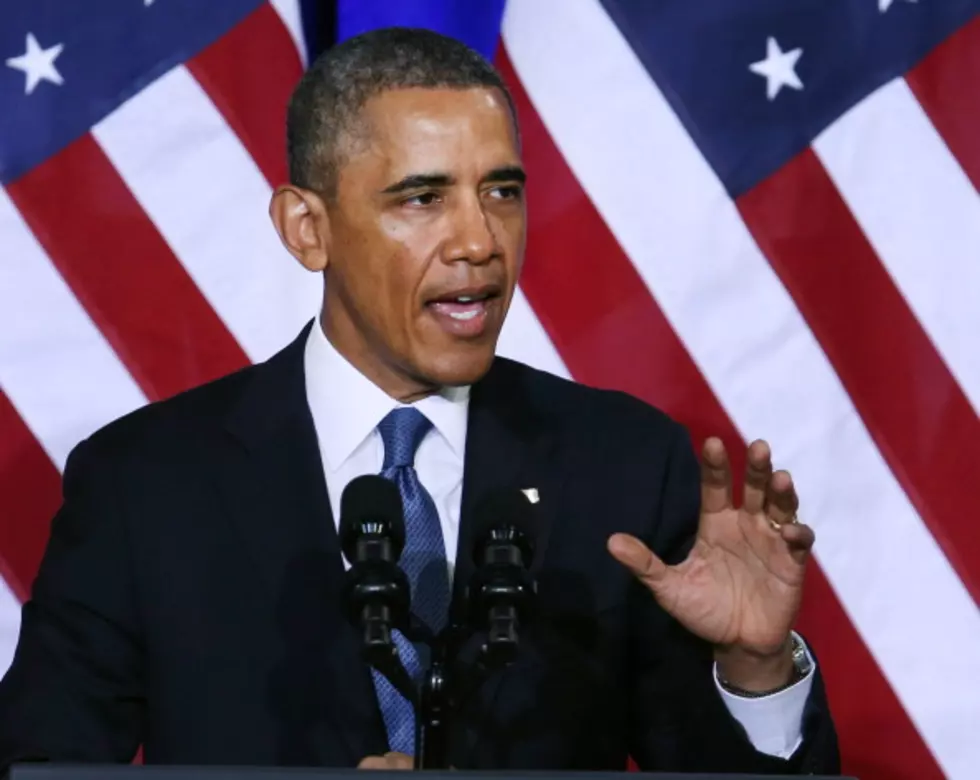![Security vs. Privacy – Which Side Are You On? [POLL]](http://townsquare.media/site/385/files/2013/06/KeithAlexander-300x2051.jpg?w=980&q=75)
Security vs. Privacy – Which Side Are You On? [POLL]
This is the pivotal question of our time.
Do we sacrifice our cherished right to privacy for the comfort of knowing we’re being protected from terrorism?
Those who are on the side of privacy say that the government’s “data mining” targets millions of innocent civilians amassing phone records and possibly internet transactions in order to find the “needle in the haystack” threat of terrorism.
They cite, and rightly so, how the government, in the interests of national security during World War 2, interred many Japanese American citizens in camps and confiscated property; all the while some of their relatives were fighting for the Allies!
One need look no further than the recent IRS’ targeting of conservative groups to see how far reaching governmental abuses can go.
The other side claims that the world has changed since 9/11; indeed the world has changed since 1776; and the price we pay for our security, privacy, is well worth it.
That’s borne out by the recent finding that a large majority of Americans say the federal government should focus on investigating possible terrorist threats even if personal privacy is compromised, and most support the blanket tracking of telephone records in an effort to uncover terrorist activity.
Fully 45 percent of all Americans say the government should be able to go further than it is, saying that it should be able to monitor everyone’s online activity if doing so would prevent terrorist attacks, according to a new Washington Post-Pew Research Center poll. A slender majority, 52 percent, say no such broad-based monitoring should occur.
Overall, 56 percent of Americans consider the National Security Agency accessing telephone call records of millions of Americans through secret court orders “acceptable,” while 41 percent call the practice “unacceptable.”
The programs causing the global uproar were revealed by Edward Snowden, a 29-year-old employee of government contractor Booz Allen Hamilton. Snowden, whose identity was revealed at his own request, fled to Hong Kong in hopes of escaping criminal charges.
Sen. Dianne Feinstein of California, who heads the Senate Intelligence Committee and supports the surveillance, accused Snowden of committing an “act of treason” and said he should be prosecuted.
In Washington, members of Congress said they would take a new look at potential ways to keep the U.S. safe from terror attacks without giving up privacy protections that critics charge are at risk with the government’s current authority to broadly sweep up personal communications.
“There’s very little trust in the government, and that’s for good reason,” said Rep. Adam Schiff, D-Calif., who sits on the House Intelligence Committee. “We’re our own worst enemy.”
A senior U.S. intelligence official said there are no plans to scrap programs that, despite the backlash, continue to receive widespread if cautious support within Congress.
Furthering that is the testimony given by the head of the National Security Administration Gen. Keith Alexander, saying secret US surveillance prevented “dozens” of terror attacks in recent years — and might have foiled the 9/11 hijackers if sophisticated phone tracking had been in place in 2001.
Gen. Keith Alexander said US intelligence knew of phone calls Khalid al-Mihdhar made allegedly to an al Qaeda safe house before he hijacked the plane that crashed into the Pentagon.
“We had intercepts on Mihdhar,” Alexander told the Senate Appropriations Committee. “But we didn’t know where he was.”
Mihdhar and another hijacker, Nawaf al-Hazmi, had traveled to San Diego for pilot training.
Had the metadata phone-tracking program secretly created after 2005 been in effect in 2001, Mihdhar and Hazmi and the other 9/11 hijack teams might have been located through Mihdhar’s phone, Alexander suggested.
“We could take that number and go backwards in time,” he said, “and if we saw four other groups, we’d say this looks of interest and pass this to the FBI,” he said.
Asked by Sen. Patrick Leahy (D-Vt.) how many attacks have been thwarted by phone tracking and Internet surveillance, Alexander said:
“It’s dozens of terrorist events that these have helped. Both here and abroad, in disrupting, or contributing to the disruption of terrorist attacks.”
I do wonder that with all the “data” the government has amassed, what becomes of the vast majority of it deemed “unusable”.
Is it discarded like so much waste, or held onto for future reference; opening the door for possible abuse later on?
As I said, the pivotal question of our age:
Do we risk our personal privacy for the sake of security.
And one last note on how dangerous a road we’re on comes from this quote:
Those who do not remember the past are condemned to repeat it.
George Santayana
Ar
More From New Jersey 101.5 FM









